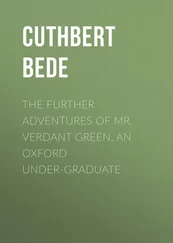When we had climbed up to the edge of the plateau where the village of El Dorado begins, we almost stopped; and then slowly, very slowly, we went on. I heard Picolino draw his breath, and, like him, I breathed in very deeply, forcing the air right down into the bottom of my lungs and letting it out gently, as though I were afraid of living these wonderful minutes too fast, these _first minutes of freedom_.
The broad plateau opened in front of us; to the right and left were houses, all bright and clean and surrounded by flowers. Some children had caught sight of us, and even though they knew where we came from, they approached us, not unfriendly at all; no, they were kind, and they walked beside us without a words They seemed to understand how grave this moment was, and they respected it.
In front of the first house there was a little wooden table where a fat black woman was selling coffee and _are pas_, corn muffins.
"Good morning, lady."
"_Buenas dias, hombres!_"
"Two coffees, please."
"_Si, senores_." And the good fat creature poured us two cups of delicious coffee; we drank standing, there being no chairs.
"What do I owe you?"
"Nothing."
"How come?"
"It's a pleasure for me to give you the first coffee of your freedom."
"Thank you. When's the next bus?"
"Today's a holiday, so there's no bus; but there's a truck at eleven."
"Okay. Thanks."
A black-eyed, light-skinned girl came out of a house. "Come in and sit down," she said with a lovely smile.
We walked in and sat down with a dozen people who were drinking rum.
"Why does your friend loll out his tongue?"
"He's sick."
"Can we do anything for him?"
"No, nothing: he's paralyzed. He's got to go to the hospital."
"Who's going to feed him?"
''Me.''
"Is he your brother?"
"No, my friend."
"You got money, Frenchman?"
"Very little. How did you know I was French?"
"Everything gets known here in no time. We knew you were going to be let out yesterday, and that you escaped from Devil's Island, and that the French police are trying to catch you to put you back there again. But they won't look for you here; they don't give orders in this country. We are the ones who are going to look after you."
"Why?"
"Because…"
"What do you mean?"
"Here, drink a shot of rum and give one to your friend."
Now a woman of about thirty was taking over. She was almost black. She asked me whether I was married. No. If my parents were still alive. Only my father.
"He'll be glad to hear you are in Venezuela."
"That's right."
A tall dried-up white man spoke up-he had big, staring eyes, but they were kind-"My relative didn't know how to tell you why we are going to look after you. Well, I'll tell you. Because unless he's mad-and in that case there's nothing to be done about it-a man can be sorry for what he's done, and he can turn into a good man if he's helped. That's why you'll be looked after in Venezuela. Because we love other men, and, with God's help, we believe in them."
"Why do you think I was a prisoner on Devil's Island?"
"Something very serious, for sure. Maybe for having killed someone, or for a really big theft. What did you get?"
"Life."
"The top sentence here is thirty years. How many did you do?"
"Fourteen. But now I am free."
"Forget all that, _hombre_. As quick as you can, forget everything you suffered in the French prisons and here in El Dorado. Forget it, because if you think about it too much you'll feel ill will toward other men and maybe even hate them. Only forgetting will let you love them again and live among them. Marry as soon as you can. The women in this country are hot-blooded, and the love of the woman you choose will give you happiness and children, and help you forget whatever you have suffered in the past."
The truck arrived. I thanked these kind, good people and went out, holding Picolino by the arm. There were about ten passengers sitting on benches in the back of the truck. They left us the best seats, next to the driver.
As we lurched along the potholed track, I thought about this strange Venezuelan nation. Neither the fishermen of the Gulf of Paria, nor the ordinary soldiers of El Dorado, nor the humble workingman who talked to me in that thatched mud hut had had any education. They could hardly read and write. So how did they come to have the charity and nobility to forgive men who had done wrong? How did it come about that the heads of the penal settlement of El Dorado, both the officers and the governor- educated men, those-had the same ideas as the simple people, the belief in giving every man a second chance, whoever he is and whatever he's done? That generosity could not have come from Europeans; so the Venezuelans must have got it from the Indians.
We arrived in El Callao. A big square, music. Of course: it was July 5, the national holiday. All the people in their best clothes made up a motley crowd, typical of tropical countries where so many colors are mixed-black, yellow, white and the copper of the Indians, whose race always shows in the slightly slanting eyes and the lighter skin. Picolino and I got out, along with some passengers from the back of the truck. One of them, a girl, came up to me and said, "Don't pay: that has been looked after." The driver wished us good luck, and the truck set off again. Holding my little bundle in one hand while Picolino gripped the other with the three fingers he had left, I stood there wondering what to do. I had some English pounds from the West Indies, a few hundred bolivars * [* A bolivar is worth about a quarter in U.S. money.] given me by my math pupils at the penal settlement, and some raw diamonds found among the tomatoes in the vegetable garden I had made.
The girl who had told us not to pay asked me where we were going, and I told her my idea was to find a little boardinghouse.
"Come to my place first; then you can look around."
We crossed the square with her, and in a couple hundred yards we reached an unpaved street lined with low houses; they were all made of baked clay, and their roofs were thatch or corrugated iron. At one of them we stopped.
"Walk in. This house is yours," the girl said. She must have been about eighteen.
She made us go in first. A clean room with a floor of pounded earth; a round table; a few chairs. A man of about forty, medium height, with smooth black hair, Indian eyes, and the same light reddish-brown skin as his daughter. And three girls of about fourteen, fifteen and sixteen.
"My father and my sisters," she said, "here are some strangers I have brought home. They've come from the El Dorado prison, and they don't know where to go. I ask you to take them in."
"You're welcome," the father said. And he repeated the ritual words, "This house is yours. Sit down here, around the table. Are you hungry? Would you like coffee or rum?"
I didn't want to offend them by refusing, so I said I'd like some coffee. I could see from the simple furniture that they were poor.
"My daughter Maria, who brought you here, is the eldest. She takes the place of her mother, who left us five years ago with a gold prospector. I'd just as soon tell you that myself, before you hear it from someone else."
Maria poured coffee for us. Now I could look at her more closely, because she had taken a seat next to her father, right opposite me. The three sisters stood behind her. They looked closely at me, too. Maria was a girl of the tropics, with big, black, almond-shaped eyes. Her jet-black curling hair, parted in the middle, fell to her shoulders. She had fine features, and although you could detect the drop of Indian blood from the color of her skin, there was nothing Mongolian about her face. She had a sensuous mouth and splendid teeth. Every now and then she revealed the tip of a very pink tongue. She was wearing a white, flowered, wide-open blouse that showed her shoulders and the beginning of her breasts, covered by a brassiere that was visible under the blouse. This blouse, a little black skirt, and flat-heeled shoes were what she had put on for the holiday-her best. Her lips were painted bright red, and she had penciled two lines at the corners of her huge eyes to make them seem even larger.
Читать дальше
Конец ознакомительного отрывка
Купить книгу











